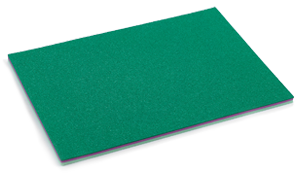دسامبر . 17, 2024 03:27 Back to list
Durable Flooring Options for Commercial Kitchen Tile Installations
The Importance of Choosing the Right Tile Flooring for Commercial Kitchens
When it comes to designing a commercial kitchen, one of the most critical decisions revolves around flooring options. The flooring in such an environment must withstand high levels of wear and tear, exposure to moisture, and occasional spills of food and cleaning agents. Among various flooring solutions, tile flooring stands out as an excellent choice due to its durability, ease of maintenance, and aesthetic appeal. In this article, we will explore the advantages of tile flooring in commercial kitchens and provide guidance on what to consider when selecting the right tile.
Durability and Resilience
Commercial kitchens are bustling places where efficiency is key. The high foot traffic and heavy equipment can take a toll on flooring materials. Tile flooring, particularly ceramic and porcelain tiles, are known for their strength and resilience. They can endure impacts, scratches, and staining better than many other materials, making them ideal for high-traffic areas. Moreover, tiles do not warp or suffer deterioration due to moisture exposure, which is crucial in a kitchen environment where spills are frequent.
Safety First
Safety is paramount in any commercial kitchen. Slips and falls can lead to serious injuries and pose a significant liability for restaurant owners. Many tile flooring options come with a textured surface that provides good traction, reducing the risk of accidents. Additionally, tiles can be selected with slip-resistant ratings, further enhancing safety. This is particularly important near cooking areas or dishwashing stations, where the risk of wet floors is higher.
Hygiene and Easy Maintenance
Maintaining a sanitary environment is essential in any food service establishment, and tile flooring excels in this regard. The non-porous surface of ceramic and porcelain tiles prevents bacteria growth and allows for easy cleaning. Regular sweeping and mopping are generally sufficient to keep tile floors in pristine condition. Unlike carpets or other floor materials that can harbor dirt and germs, tile does not absorb spills, making it a more hygienic choice for a kitchen.
Aesthetic Versatility
While functionality is crucial, aesthetic appeal should not be overlooked. Tile flooring comes in a vast array of colors, patterns, and textures, allowing kitchen owners to customize the space to reflect their brand identity. Whether you prefer a modern, sleek look or a more rustic feel, there is a tile option available to match your vision. The versatility of tile also means that renovations or updates can be made relatively easily if the kitchen's design needs to evolve over time.
Cost-Effectiveness
commercial kitchen tile flooring

Investing in tile flooring for a commercial kitchen might seem daunting at first due to the initial costs. However, when considering the long-term benefits and durability, tiles are often more cost-effective than alternative flooring options. Their resistance to staining and damage means lower maintenance and replacement costs over time. Additionally, tiles can last for decades with proper care, making them a smart investment for any business.
Factors to Consider
When selecting tile flooring for a commercial kitchen, several factors should be taken into account
1. Material Choose between ceramic and porcelain tiles based on the specific needs of your kitchen. Porcelain is denser and more resistant to moisture, making it suitable for wet areas.
2. Texture and Slip Resistance Ensure that the tiles are textured enough to provide traction, especially in zones where water spills are likely.
3. Color and Design Choose colors that complement your restaurant's theme while keeping practicality in mind, as lighter shades may show dirt more easily.
4. Budget Set a budget for your flooring project, considering both installation and long-term maintenance costs.
5. Installation Proper installation is crucial for the longevity of tile flooring. Hiring experienced professionals ensures that the tiles are laid correctly and minimizes future issues.
Conclusion
Tile flooring offers numerous advantages for commercial kitchens, including durability, safety, hygiene, aesthetic versatility, and cost-effectiveness. When making a flooring choice, it's essential to consider the specific requirements of your kitchen environment. With the right tiles, you can create a functional yet attractive workspace that not only meets the demands of a busy operation but also enhances the overall dining experience for your customers.
-
Premium Outdoor Court Tiles for Durable Sports Surfaces
NewsJul.27,2025
-
Premium Sport Court Tiles for Multi-Purpose Courts & Outdoor Use
NewsJul.26,2025
-
Multi Purpose Court Surface for Versatile Sports Use | Durable Tiles
NewsJul.25,2025
-
Durable Sport Court Tiles for Multi-Purpose Courts & Outdoor Use
NewsJul.24,2025
-
Durable Multi Sport Court Tiles for Indoor & Outdoor Use
NewsJul.23,2025
-
Premium Outdoor Court Tiles for Multi-Sport Use – Durable & Easy Install
NewsJul.22,2025

